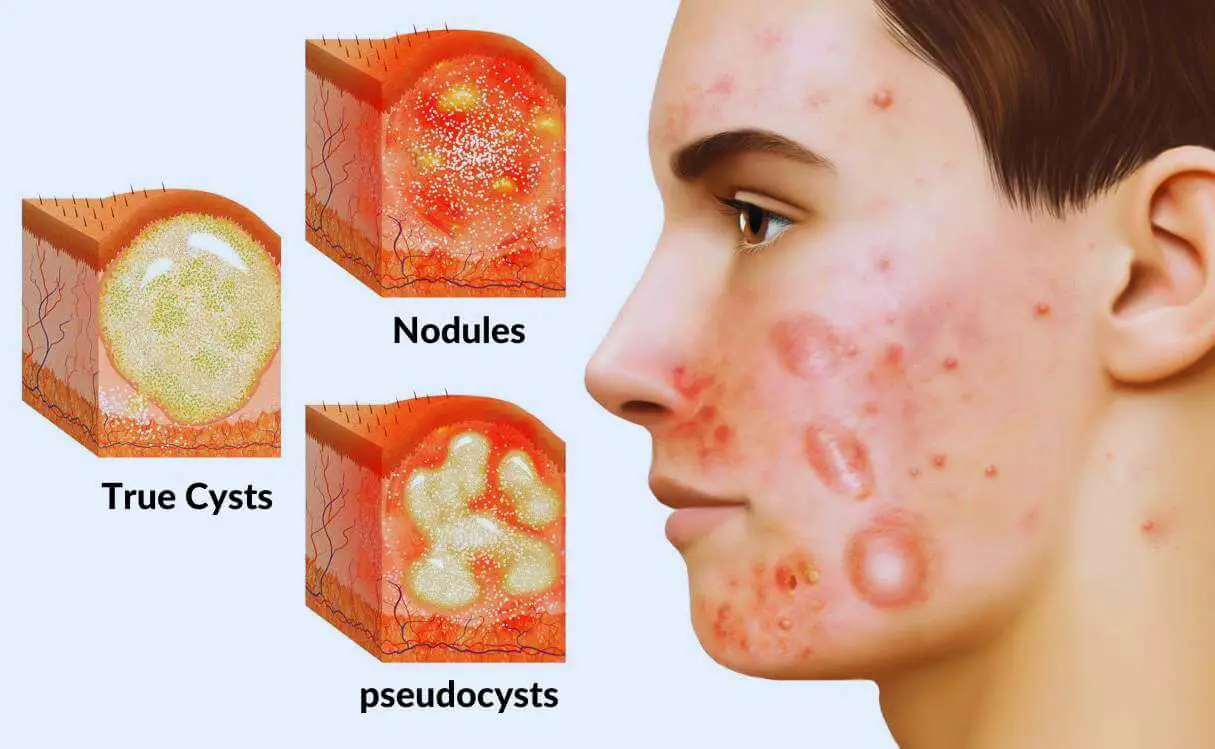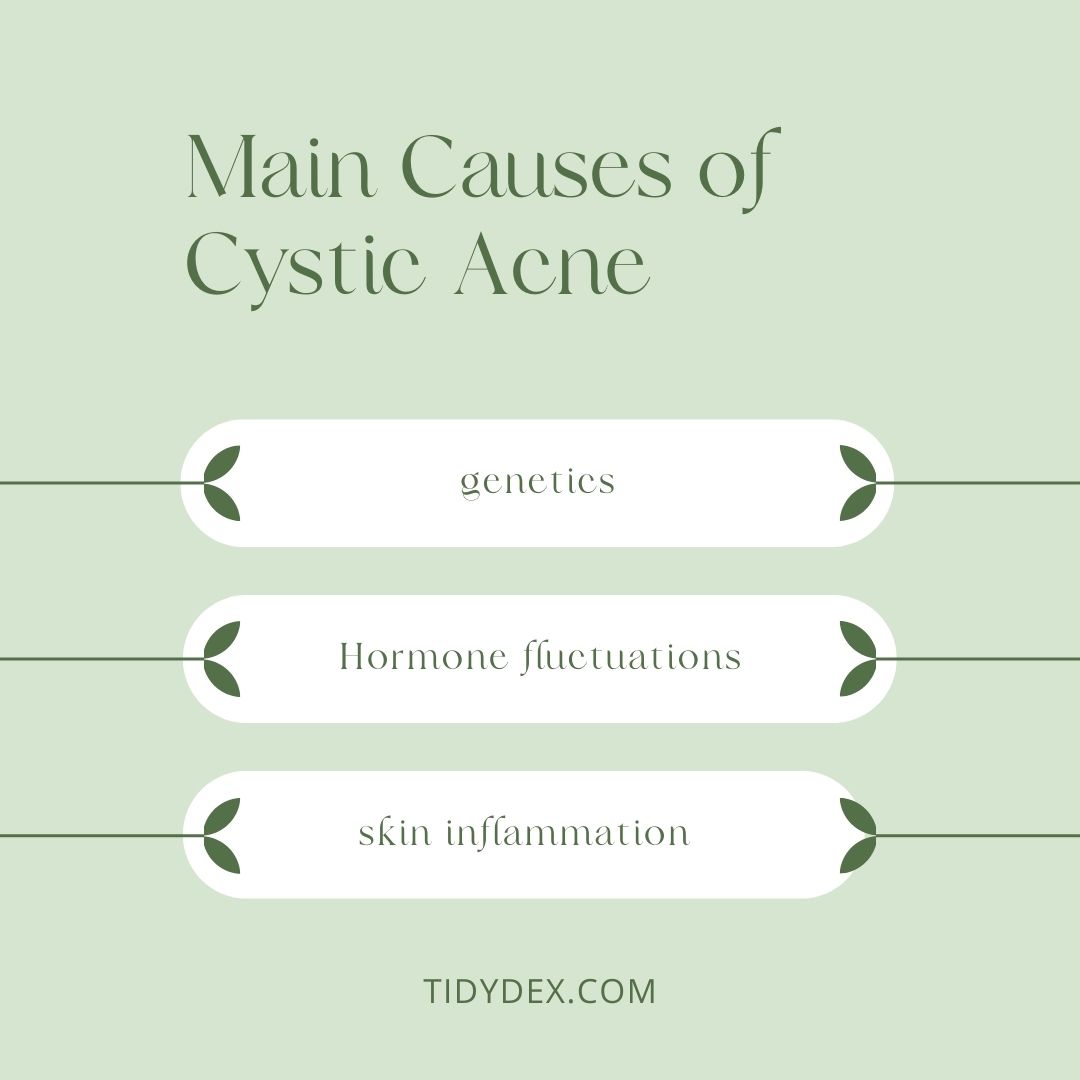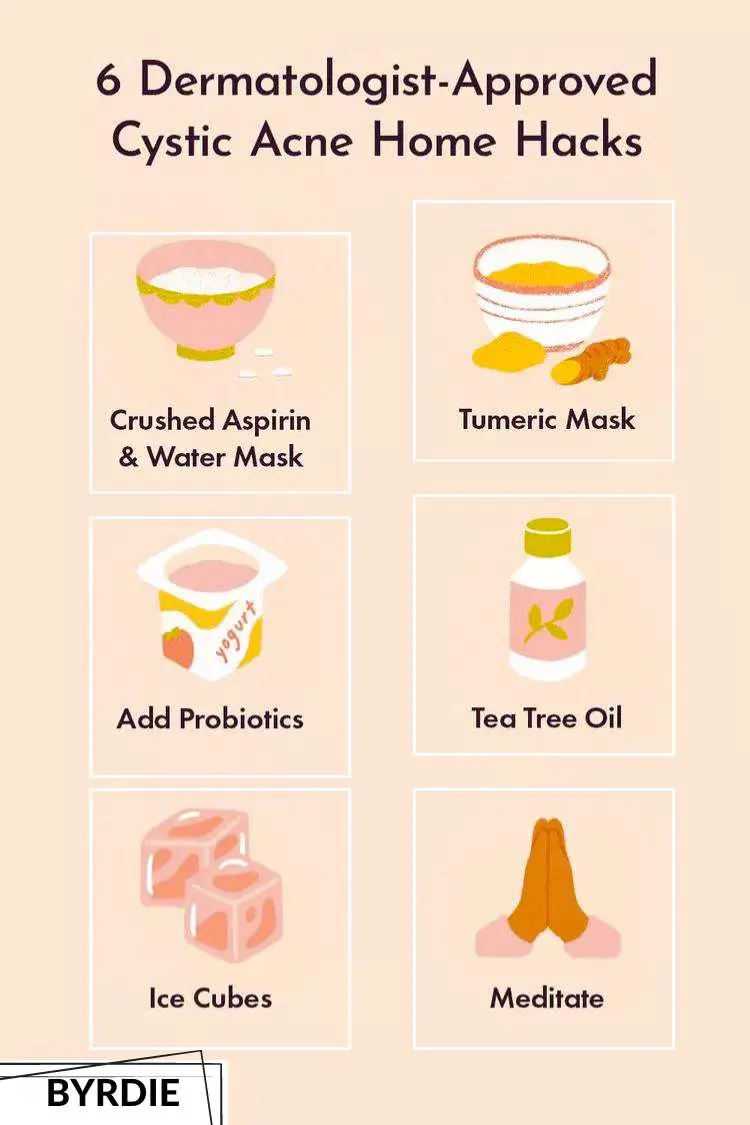Why You Should Be Worried of Cerave Causing Cystic Acne
Cerave is a popular skincare line that contains acne-fighting ingredients. However, some Cerave users have reported that their cystic acne has worsened since using the product. Is Cerave responsible for this? Is Cerave Causing Cystic Acne?
Some people believe Cerave may exacerbate cystic acne because it contains ingredients which can dry out and irritate the skin. Is it true? Let’s find out.

What is cystic acne?
Cystic acne is a relatively common type of acne that can be very frustrating to treat. In general, cystic acne is composed of small, oil-filled bumps that may or may not bleed when squeezed. These bumps can be quite painful and tend to recur. While there is no cure-all for cystic acne, various treatments can help to improve the condition. Some of the most common treatments include benzoyl peroxide products, topical retinoids, and antibiotics.

What Are The Main Causes Of Cystic Acne?
The presence of small, pus-filled cysts identifies cystic acne as a type of acne. There are many causes of cystic acne, including genetics, hormones, skin inflammation, and certain types of bacteria. Here they are-

- Genetics: Cystic acne is commonly inherited from parents or a person’s birth cohort.
- Hormone fluctuations: During puberty and adulthood cystic acne can cause.
- Blockages in the sebaceous glands: Cystic acne can be caused when hair and sebum build up in the glands and block their output.
Does Cerave Causing Cystic Acne !
When it comes to the cause of cystic acne, no one can give a definitive answer. However, some doctors have suggested that cerave may be a possible factor. Cerave is a topical medication used to treat skin conditions such as psoriasis and eczema. However, there is not much research surrounding cerave’s potential role in the development of cystic acne. Therefore, more study is needed in this area.
CeraVe cleanser causing breakouts
You shouldn’t get any outbreaks after using CeraVe cleanser. Because of its mildness and moisturizing properties, it is frequently suggested. The problem is that everyone has a different skin type, so one person’s solution might not work for another.
Here’s what you can do if your skin breaks out after using CeraVe cleanser:
1. Verify the ingredients: Choose a cleanser that is formulated for your specific skin type. It’s possible that some people have sensitivities to certain substances.
2.Patch Test: Before using a new skincare product all over your face, test it on a small patch of skin to see how your body reacts to it.
3. Consistency Matters: Maintain a regular skin care program. Switching products too often can lead to outbreaks.
4.Consult a Dermatologist: If pimples continue to bother you, it’s probably time to see a dermatologist. They can help you identify the issue and advise you on the best course of action for your skin.
Keep in mind that there is no such thing as a “one size fits all” when it comes to skincare; rather, it is often a matter of experimenting with different products before finding the one that works best for your skin.
Does CeraVe moisturizing cream cause acne?
CeraVe Moisturizing Cream is generally considered non-comedogenic, meaning it is unlikely to cause acne. The formulation includes ingredients like ceramides and hyaluronic acid, which promote hydration without clogging pores. However, individual reactions can vary, and some people with very sensitive or acne-prone skin may still experience breakouts.
It’s important to note that acne is a complex skin condition influenced by various factors, such as genetics, hormones, and skincare habits. While CeraVe Moisturizing Cream is designed to be gentle and suitable for most skin types, some individuals may be more prone to breakouts due to their unique skin chemistry.
Before applying any kind of new product into your skincare routine, including CeraVe Moisturizing Cream, it’s advisable to perform a patch test. Apply a small amount of the cream to a small area of your skin, typically behind the ear or on the inner forearm, and observe for any adverse reactions over 24-48 hours.
Additionally, to optimize acne management, consider complementing the moisturizer with other acne-fighting products, such as benzoyl peroxide, salicylic acid, or retinoids. These ingredients can target specific acne-related concerns and work in synergy with the moisturizer to promote healthier skin.
If you experience persistent acne breakouts or have concerns about using CeraVe Moisturizing Cream, it’s always best to seek professional advice from a dermatologist. A skincare expert can evaluate your individual skin needs, identify potential triggers, and recommend suitable products for your unique skin type and condition.
In short, CeraVe Moisturizing Cream is generally well-tolerated and unlikely to cause acne for most individuals due to its non-comedogenic formulation. However, individual reactions can vary, and some people with very sensitive or acne-prone skin may still experience breakouts. Performing a patch test and seeking dermatological advice can help ensure a successful and acne-friendly skincare journey.
Are Cetaphil Moisturizers Good For Cystic Acne !
A dermatologist says the answer may be yes. Cystic acne is a condition that can form on the skin due to a variety of factors, such as hormonal imbalance, inflammation, or infection. There are numerous products on the market today that claim to be effective in treating cystic acne. One such product is Cetaphil, which is often prescribed to treat rosacea and other types of skin conditions. While it has not been studied explicitly in the context of cystic acne, some potential benefits are associated with using Cetaphil over other moisturizers for this particular ailment. It is known to have anti-inflammatory properties. In other words, it can reduce inflammation on the skin and prevent future outbreaks.
Can Hyaluronic Acid Cause Acne!
There is no clear answer regarding hyaluronic acid (HA) causing acne. However, there are a few potential explanations for why this particular molecule might be associated with the development of acne. First, HA may play a role in the skin’s growth and accumulation of sebum. Second, HA may help to reduce inflammation and oil production, both of which could lead to an increase in acne lesions. Finally, HA could contribute to an overproduction of white and blackheads, leading to an increased number and severity of new acne breakouts. So, while there is no clear answer as to whether HA can cause acne breakout, it’s important to be aware that this molecule may play a role in developing this condition.
Extra Information
How Do You Get Rid Of Cystic Acne Fast?
Cystic acne is a common skin problem that can be difficult to get rid of. There are a number of ways to get rid of cystic acne, but the most effective method may vary depending on the type of cystic acne.
- If you have an oily or combination skin type, keeping your skin clean and free from oils and makeup is important. You may also want to try using a cleansing cream or toner that contains alcohol. This will help reduce the production of oil and bacteria on your skin.
- If you have a dry or sensitive skin type, it is important to use a moisturizer with amphoteric lipids and glycerine. The ingredients in these products will help keep your skin hydrated and healthy. You should also avoid using lotions with fragrances because they can increase oil production and bacteria on your skin.

Is Salicylic Acid Making Your Cystic Acne Worse
There is a lot of debate over the role of salicylic acid in the development of cystic acne, with some claiming that it helps to clear the skin and prevent future acne outbreaks. In contrast, others maintain that it exacerbates existing acne lesions and worsens them.
The current consensus is that salicylic acid can play a role in the development of cystic acne and can be responsible for contributing to increased inflammation and sebum production. However, there is still no clear answer as to whether or not using salicylic acid as part of an acne treatment regimen can make your cystic acne breakouts worse.
If you’re considering taking up salicylic acid as part of your treatment plan, be sure to speak to your doctor first to get their advice on whether or not it’s best for you.
How Long Do Cystic Pimples Last?
Cystic pimples are slightly different from common pimples in that they are filled with pus and oil. These bumps can last from a few days to a few weeks, but the average cystic pimple will disappear in about two weeks. Some people might experience an increase in acne after popping their cysts, but this is typically temporary and should decrease over time. If your cystic pimple does not improve within two weeks or if it becomes more inflamed, consult a doctor.
Clinical Studies: What Does The Research Say About Cerave’s Effectiveness For Acne?
CERAVE has become one of the market’s most popular skin care products. It offers creams, lotions, and face wash as part of its skincare collection. The company has conducted multiple clinical studies to determine its products’ effectiveness for Acne treatment.
Studies have shown that cerave can be effective at treating Acne vulgaris. Cerave has been shown to be more effective than a placebo at reducing acne lesions and improving skin quality. Cerave was found to be as effective as some prescription medications used to treat Acne vulgaris. While cerave may not be suitable for everyone, it is a good option for those who suffer from Acne vulgaris.
Cerave & Fungal Acne: What Is Known So Far?
In recent years, there has been an increasing amount of research on the connection between cerave and fungal acne. So far, what is known is that both products can work to clear skin conditions, but there are some important differences between the two. Here are a few key points to keep in mind if you’re considering using either product:
- Cerave is typically more effective at treating comedonal acne, which is the most common type of acne. Fungal acne, by contrast, tends to be more difficult to treat with topical medications.
- Cerave can also help improve skin texture and tone and effective for skin care treatment.
FAQ
Which Is Better For Acne Treatment, Cerave Or Cetaphil?
Cerave is a better option for acne because it has more ingredients that are known to be effective in fighting acne.
How Long Does It Take For Cerave To Work?
Cerave is a moisturizer that is meant to be applied every day to maintain healthy skin. The full effects of Cerave can take up to two weeks.
What Are The Side Effects Of Cystic Acne Treatments?
Cystic acne treatments can cause side effects such as dryness, peeling, redness, and irritation. Prior to choosing a treatment option, make sure you discuss the risks and benefits with your doctor.
Conclusion:
Researchers found that Cerave Causing Cystic Acne is true. It is important to be aware of the potential ingredients in any product you are using and to consult with a dermatologist if you experience any signs of cystic acne.
Ref :-

Leave a Reply